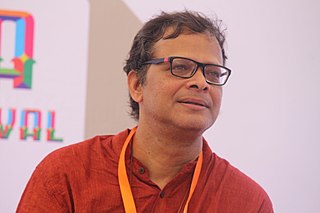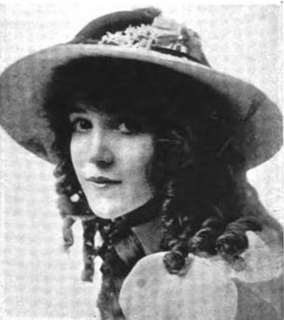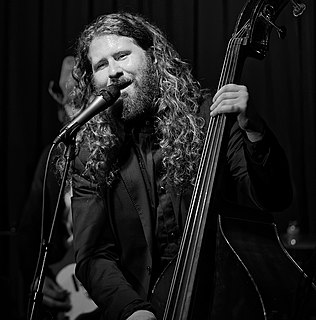A Quote by Gil Scott-Heron
You can have a poem like "B-Movie" and sum up thirty conversations that people have had on the subject, but I wrote it down, and other people didn't.
Related Quotes
It was early on in 1965 when I wrote some of my first poems. I sent a poem to 'Harper's' magazine because they paid a dollar a line. I had an eighteen-line poem, and just as I was putting it into the envelope, I stopped and decided to make it a thirty-six-line poem. It seemed like the poem came back the next day: no letter, nothing.
I had a dream, in 1985, I believe, when a friend I'd gone to school with was sick - one of the first people I knew who'd gotten the AIDS virus. I had a dream of him in his bedroom with an angel crashing through the ceiling. I wrote a poem called 'Angels in America.' I've never looked at the poem since the day I wrote it.
If we change in different directions, then we don't have any future anyway, do we? I think it's possible for two people to change together, to grow together and enrich instead of diminish each other. The sum of one and one, if they're the right ones, can be infinity! But so often one person drags the other down; one person wants to go up like a balloon and the other's a dead weight. I've always wondered what it would be like if both people, if a woman and a man both wanted to go up like balloons!
I didn't go to bookshops to buy. That's a little bourgeois. I went because they were civilized places. It made me happy there were people who sat down and wrote and wrote and wrote and there were other people who devoted their lives to making those words into books. It was lovely. Like standing in the middle of civilization.
My mother had died when I wrote my first book. I was twenty-seven, so it was right at the beginning of my writing life. I don't know if she had lived, if I would have done it, certainly not quite like I did. But, you can't rethink it. You wrote what you wrote, it meant something to other people, and that's your good.
If you happen to find it hard to have sustained conversations, try keeping your voice up at the end of the sentence. There is a charming graciousness in doing so, for it seems to say that you do not think your remarks are the last words to be said on the subject. It prevents you from seeming opinionated. How men dislike an opinionated woman! No one really likes her! To keep your voice up sounds as though you are interested in other people's ideas. The subject is still open!
The subject of the poem usually dictates the rhythm or the rhyme and its form. Sometimes, when you finish the poem and you think the poem is finished, the poem says, "You're not finished with me yet," and you have to go back and revise, and you may have another poem altogether. It has its own life to live.
You're sincere, but in order not to upset your views you avoid talking with people who think differently. You pick your thoughts from conversations with people like yourself, from books written by people like yourself. In physics they call it resonance. You start out with modest opinions, but they match and build each other up to a scale.






































